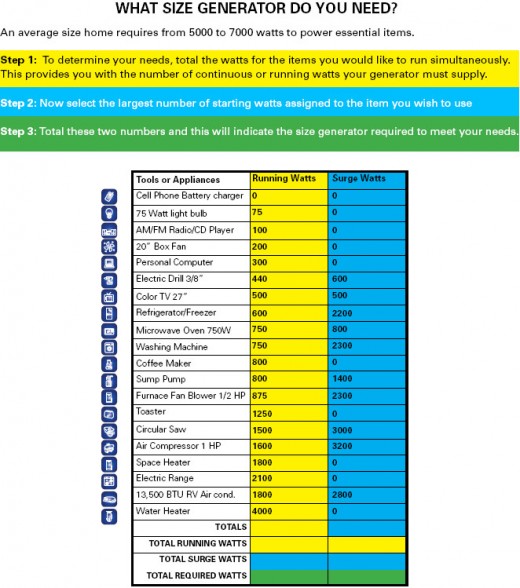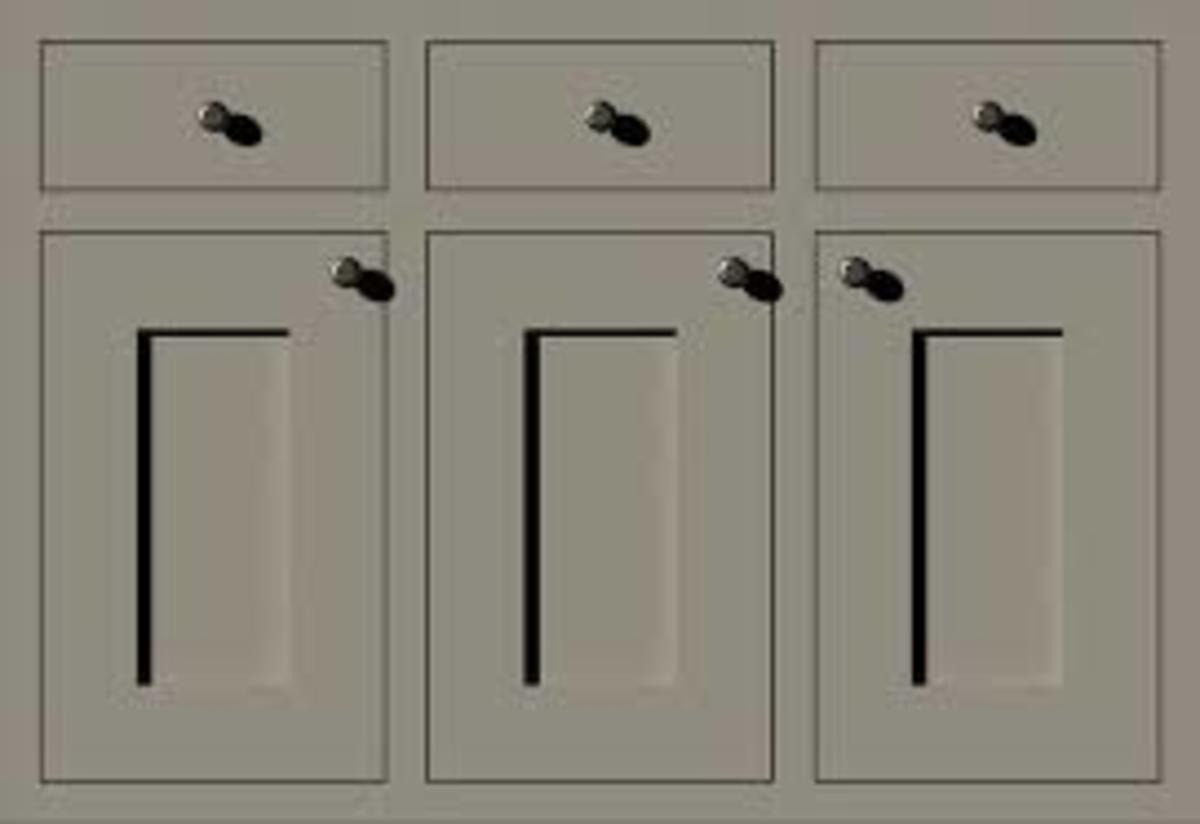Portable Generators
Hurricane season is nearing an end and winter is right around the corner. If you don't live in areas affected by hurricanes, there's a chance that you live in an area where you actually experience seasons. I say that because I'm in Florida, where we get about 3 days of "chilly" weather a year! I haven't always lived here, though, and so I am aware of the importance not only of a portable generator for hurricane season, but also for the winter months.
Being stuck in your house on a cold winter day with no power due to a snowstorm can be pretty miserable. Some chose to purchase portable power generators for just such a case. Interested in finding out more about portable power generators? Stick around...
Do you know that you can purchase a portable generator on Amazon.com AND have it delivered for FREE? Save a trip to the store where you’ll be overwhelmed with choices and no information from people who have experience with the actual generators available. Amazon has a great selection for all your needs and you can read hundreds of reviews from people who have first-hand knowledge of the specific generator you’re looking at.
Keep reading and you'll also find a chart down below to help you determine what size generator you need.
Why Do You Need A Generator?
Well, if you’re reading this, then most likely you’ve already determined that you could use one and want to learn more. If you haven’t decided, then I hope the following will help you understand what their benefits are, what types there are, how to determine what size is right for you and some very important safety tips.
One downed power line can interrupt the entire chain of electricity that connects your home to its power. A generator comes in handy to help keep your lights on as well as important appliances like refrigerators, freezers, air conditioners, water heaters and even washers and dryers. Also, after a storm, the generator can be used to run outdoor power equipment for clean-up.
portable models:
Which Type is Right for You: Portable Generator or Standby Generator?
Basically, there are two types of generators: Portable and Standby.
1. Portable generators run off a gasoline engine and can power a limited number of appliances and lights via extension cords. They are easily stored and most have sturdy wheels for easy maneuvering.
Prices range anywhere from $300 to $1,000, but most people will find that they do not need to spend more than around $500 for a good generator to meet their needs in an emergency. Most of this type usually run 8-12 hours on one tank of gas and provide 2,000-8,000 watts or more.
You will find that generators are also described by their horsepower, but what really matters is the wattage that it will run. Remember, too, that most large appliances such as refrigerators, televisions, washing machines and air conditioner units require a much higher start-up wattage than they require for continuously running them, so make sure you account for those extra start-up watts you’ll need.
The benefits of using a portable generator include being a low cost, when compared to a standby system, solution for delivering electrical power where and when you need it. They are available with either electric or manual starters, and manual transfer switch options, which allow you to connect the generator directly to your home’s circuit breaker.
2. Standby generator systems connect indirectly to a home’s wiring system and are suitable mostly for people who experience long power outages regularly or have special requirements, such as health concerns, for continuous power.
These systems usually cost $3,000 or more and can supply 10,000 to 30,000 watts or more. They usually run on natural or propane gas and have a transfer switch that lets you chose the equipment to want powered.
The benefits of this type of generator are that it reacts immediately to a power outage and supplies electricity to your home, then it shuts itself off and returns to standby mode automatically.
It is powered by natural or propane gas and is permanently wired into your homes electric panel.
These types of units pose no risk of shock from electrical cords, no gasoline storage required and, most importantly, when properly installed, have no danger of carbon monoxide poisoning.
What Size is Right For You?
To figure out what size you need, determine the electrical requirements of all the appliances you want to power and add up those numbers. For example, if you wanted to run a microwave (1100 watts), a radio (200 watts) and three lights (225 watts) – for these, you need a generator that can run at least 1525 watts. Appliances with motors may require a lot more power just on start-up. For example, a refrigerator that needs 1,200 watts to run may require up to 3,000 watts on start-up. You must have watts available for this. See the chart below for common wattage requirements.
Typically, an 8,000 watt generator can power your refrigerator, TV, air conditioner, 8 75-watt lights, microwave, deep freezer, electric stove, garage door opener and security system.
A 5,000 watt generator can typically power your refrigerator, TV, air conditioner, 4 lights, microwave and deep freezer.
A 3,550 watt generator will power your refrigerator, TV, air conditioner and 4 lights (75-watt).

Generator SAFETY TIPS:
Whichever type you select, always remember safety first.
- Generators do produce deadly carbon monoxide, which is colorless and odorless. The CPSC (Consumer Products Safety Commission) reports that 28 people dies from carbon monoxide poisoning associated with a portable generator after hurricane Katrina.
- Never run a generator in an enclosed area!
- Follow the manufacturer’s instructions closely to keep your family safe when using a generator.
The products below can help keep you safe and help your generator to run most efficiently, year after year:






